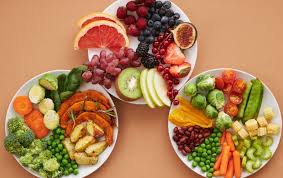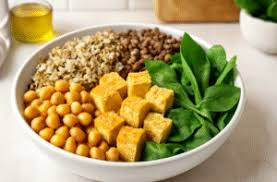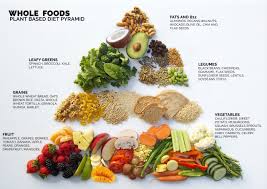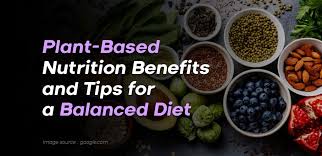Adopting a plant-based diet has become increasingly popular, not only for ethical or environmental reasons but also because of its proven health benefits. Whether you are going fully vegan, embracing vegetarianism, or simply reducing your intake of animal products, making the transition requires knowledge, planning, and the right mindset. A plant-based lifestyle can boost your energy, help prevent chronic disease, and improve overall well-being—if done correctly. This article will guide you through practical Plant-Based Nutrition Tips to ensure you get balanced meals and essential nutrients while enjoying the journey.

Understanding Plant-Based Nutrition Tips
Plant-based eating focuses on foods derived primarily from plants, such as vegetables, fruits, grains, nuts, legumes, and seeds. It does not necessarily mean eliminating all animal products unless one chooses a vegan approach, but it prioritizes plants as the central component of meals.
A balanced plant-based diet provides:
- Fiber: For digestive health and satiety.
- Phytonutrients: Natural compounds that reduce inflammation and support immunity.
- Healthy Fats: From sources like avocados, nuts, and olive oil.
- Protein: From legumes, lentils, beans, quinoa, and soy.
- Essential Vitamins and Minerals: Such as vitamin C, potassium, magnesium, and iron.
However, like any diet, there are pitfalls to avoid. The key is being mindful about nutrients that may be harder to obtain without animal sources.
Tip 1: Prioritize Protein-Rich Plants
One common concern when switching to a plant-based diet is whether it provides enough protein. Contrary to myths, plants can supply adequate protein if you eat a variety of them.
Great plant-based protein sources include:
- Lentils, chickpeas, and black beans
- Tofu, tempeh, and edamame
- Quinoa and amaranth
- Nuts and seeds (chia, hemp, flax, pumpkin seeds)
- Seitan (wheat gluten) for those not sensitive to gluten
Pro Tip: Combine grains and legumes, such as rice and beans, to ensure you’re getting a full spectrum of essential amino acids.
Plant-Based Nutrition Tips: A Complete Guide to Healthy Eating on a Plant-Focused Lifestyle

Tip 2: Focus on Whole Foods, Not Processed Options
Plant-based diets can be extremely healthy when centered on whole foods, but highly processed vegan alternatives—like mock meats, vegan cheese, or packaged snacks—may be high in sodium, sugar, and unhealthy oils.
Choose more:
- Fresh fruits and vegetables
- Whole grains (brown rice, oats, millet)
- Natural sources of fat (avocados, nuts, seeds)
Limit:
- Refined carbs (white bread, pastries)
- Sweetened plant-based drinks
- Packaged “junk vegan” foods
Remember, plant-based does not automatically equal healthy. Whole, nutrient-dense foods should always be the foundation.
Plant-Based Nutrition Tips: A Complete Guide to Healthy Eating on a Plant-Focused Lifestyle
Tip 3: Ensure You Get Enough Vitamin B12
Vitamin B12 is one of the nutrients difficult to obtain from plants since it is naturally found in animal products. B12 deficiency can lead to fatigue, nerve damage, and cognitive issues.
Ways to get B12 on a plant-based diet:
- Fortified foods like plant milks, cereals, and nutritional yeast
- A high-quality B12 supplement (cyanocobalamin or methylcobalamin)
If you follow a fully vegan diet, supplementation is essential. Even vegetarians may benefit from additional B12 support.

Tip 4: Balance Omega-3 and Omega-6 Fats
Omega-3 fatty acids are vital for heart, brain, and joint health. While fatty fish is the most common source, plant-based eaters can rely on alternatives.
Plant-based omega-3 sources:
- Chia seeds
- Flaxseeds
- Hemp seeds
- Walnuts
- Algal oil (direct source of DHA and EPA)
At the same time, limit excessive omega-6 fats from processed vegetable oils (corn, sunflower, soybean oil), which can cause inflammation if unbalanced.
Tip 5: Plan for Iron and Zinc Intake
Plant-based eaters may struggle with iron and zinc absorption since these minerals from plant foods (non-heme iron) are less bioavailable than those from animal sources.
Iron-rich plant foods:
- Lentils and chickpeas
- Spinach and kale
- Pumpkin seeds
- Tofu
- Quinoa
Zinc-rich plant foods:
- Beans
- Whole grains
- Nuts and seeds
Boost absorption: Pair iron-rich foods with vitamin C (e.g., lentils with tomatoes or spinach with citrus fruits). Avoid consuming tea or coffee immediately after iron-rich meals as they can inhibit absorption.

Plant-Based Nutrition Tips
Tip 6: Diversify Your Plate
The healthiest plant-based diets are those that include a wide variety of foods. Different plants provide unique nutrients, antioxidants, and flavors.
Aim for diversity by:
- Eating a rainbow of fruits and vegetables daily
- Rotating your grains (oats, quinoa, barley, buckwheat)
- Trying global cuisines that emphasize plant foods (Mediterranean, Indian, Ethiopian)
Not only does this prevent nutrient gaps, but it also keeps meals exciting.
Tip 7: Don’t Fear Healthy Carbohydrates
Carbs often get a bad reputation, but whole food carbohydrates are essential for energy, especially in plant-based diets. They are rich in fiber, vitamins, and minerals.
Healthy carb choices:
- Sweet potatoes
- Brown rice
- Oats
- Whole-grain bread and pasta
- Legumes
These complex carbs release energy slowly, keeping blood sugar stable and providing lasting fuel for your body.
Tip 8: Stay Hydrated and Include Electrolytes
Plants are naturally water-rich, but hydration is still key. A fiber-heavy diet can increase your water needs, so drinking enough fluids ensures smooth digestion and nutrient absorption.
Hydration tips:
- Drink 6–8 glasses of water daily
- Enjoy herbal teas
- Add electrolyte-rich foods like bananas, coconut water, and leafy greens

Tip 9: Prepare Meals Ahead of Time
Transitioning to a plant-based diet becomes much easier with meal prep. Having ready-to-go meals prevents you from reaching for unhealthy options when busy or tired.
Meal prep strategies:
- Batch cook beans, lentils, or quinoa for the week
- Chop veggies and store them for quick stir-fries
- Prepare overnight oats for breakfast
- Make snack packs with nuts, seeds, and dried fruit
This not only saves time but also ensures balanced nutrition.
Plant-Based Nutrition Tips
Tip 10: Listen to Your Body
No single plant-based plan works for everyone. Pay attention to your energy levels, digestion, and cravings. If you feel unusually tired or weak, you may need to adjust your nutrient intake or consider supplementation.
Signs of imbalance may include:
- Persistent fatigue (could indicate low B12 or iron)
- Dry skin (could suggest low healthy fats)
- Hair thinning (possibly protein or zinc deficiency)
Consulting a registered dietitian with plant-based expertise can provide personalized guidance.
Common Mistakes to Avoid in Plant-Based Eating
- Relying only on carbs: Eating mostly pasta, bread, and rice without enough protein and fat leads to imbalances.
- Neglecting supplements: Skipping B12 or omega-3 sources can harm long-term health.
- Forgetting about calories: Some plant foods are less calorie-dense, so ensure you’re eating enough to fuel your body.
- Overeating processed vegan snacks: They may be convenient but don’t provide the same benefits as whole foods.
Table of Contents
Benefits of Plant-Based Nutrition Tips
When practiced correctly, a plant-based diet can bring numerous health improvements:
- Heart Health: Reduces cholesterol, blood pressure, and risk of heart disease.
- Weight Management: High fiber keeps you full, supporting healthy weight.
- Diabetes Control: Improves blood sugar regulation.
- Better Digestion: High fiber content promotes gut health.
- Longevity: Studies link plant-based diets to longer, healthier lives.
- Environmental Impact: Reduces carbon footprint and resource use.
Conclusion
Plant-based eating is more than a trend—it’s a lifestyle that can transform your health and support the planet. By focusing on variety, nutrient balance, and whole foods, you can enjoy delicious meals that nourish your body inside and out. Remember to watch for key nutrients like protein, B12, iron, zinc, and omega-3s, and don’t hesitate to supplement where needed.
Transitioning to a Plant-Based Nutrition Tips is a journey, not a race. Start small, experiment with new foods, and listen to your body’s needs. With the right approach, you’ll not only thrive nutritionally but also find joy in exploring the rich world of plant-based cuisine.

